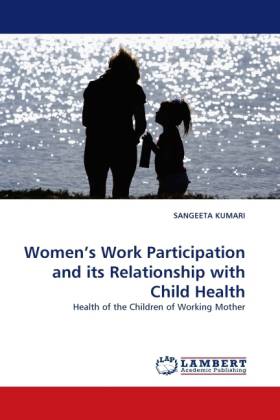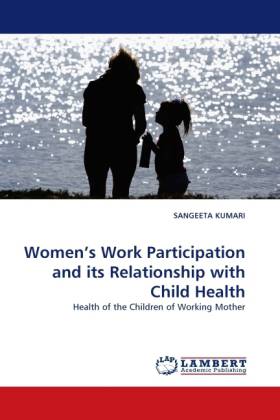
- Afhalen na 1 uur in een winkel met voorraad
- Gratis thuislevering in België vanaf € 30
- Ruim aanbod met 7 miljoen producten
- Afhalen na 1 uur in een winkel met voorraad
- Gratis thuislevering in België vanaf € 30
- Ruim aanbod met 7 miljoen producten
Zoeken
Women's Work Participation and its Relationship with Child Health
Health of the Children of Working Mother
Sangeeta Kumari
Paperback | Engels
€ 66,45
+ 132 punten
Omschrijving
Traditionally,women's are primarily confined to the domestic chores. Now,situation has changed and women have started seeking employment outside the home.Slow but growing volume of the female work participation is having a significant impact not only on the life of the women herself but also on the other aspects of family life.The present work is an attempt to understand the impact of women's work status on the health of their children. Using the data from the National Family Health Survey (1998-99) the major sixteen states of India has been grouped into economically better performing states (EBPS) and economically poor performing states (EPPS) according to state domestic product at current price (taken from economic survey 1998-99, Ministry of Finance, Government of India).It has found that most of the working women are concentrated in low paid jobs,which may indicates that women are working not for their choice but they are working because they are in need to work. The prevalence of morbidity among children of the working women are higher compared to those of the non-working women and nutritional status was found poor among the children of working women.
Specificaties
Betrokkenen
- Auteur(s):
- Uitgeverij:
Inhoud
- Aantal bladzijden:
- 108
- Taal:
- Engels
Eigenschappen
- Productcode (EAN):
- 9783843388252
- Verschijningsdatum:
- 26/01/2011
- Uitvoering:
- Paperback
- Afmetingen:
- 152 mm x 229 mm
- Gewicht:
- 168 g

Alleen bij Standaard Boekhandel
+ 132 punten op je klantenkaart van Standaard Boekhandel
Beoordelingen
We publiceren alleen reviews die voldoen aan de voorwaarden voor reviews. Bekijk onze voorwaarden voor reviews.







